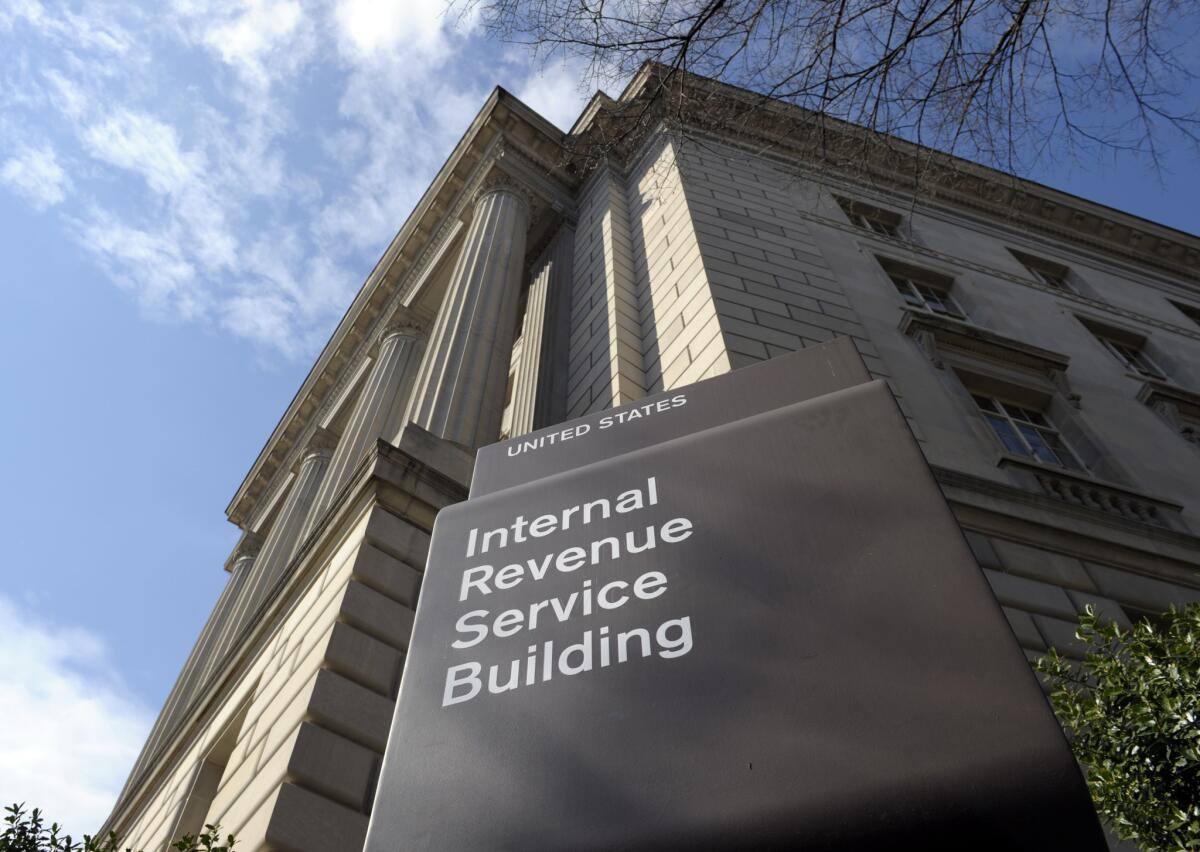501(c)(4) rules without teeth

- Share via
Last week the Internal Revenue Service and the Treasury Department published draft regulations for tax-exempt “social welfare” organizations that increasingly have become banks for anonymous political donations. But the regulations stop short of addressing the biggest problem with political spending by these tax-exempt organizations: that it exists at all.
FOR THE RECORD:
IRS: Due to an editing error, the penultimate sentence in a Dec. 4 editorial suggested that The Times believes tax-exempt social welfare organizations — so called 501(c)(4) groups — should be allowed to engage in election-related advocacy. As was made clear elsewhere in the editorial, The Times believes they should not.
Tax-exempt nonprofits created under Section 501(c)(4) of the tax code are supposed to be “operated exclusively for the promotion of social welfare.” Examples offered in an IRS publication include groups that build housing for the poor or provide financial planning. That is a defensible trade-off: In exchange for the benefit of tax-exempt status, these groups agree to concentrate on nonpolitical good works.
Unfortunately, the IRS has complicated matters by defining “exclusively” as “primarily,” meaning that 501(c)(4)s may engage in some election-related activity, though exactly how much of their spending can be political is unclear. (Some lawyers believe it is legal for a 501(c)(4) to spend up to 49% of its funds on political activity.)
YEAR IN REVIEW: Highs and lows from Obama’s roller-coaster year
This was a loophole waiting to be abused, and it has been, by social welfare groups that have spent hundreds of millions of dollars on television commercials to support candidates and political causes. Both liberals and conservatives have been attracted to the 501(c)(4) vehicle. And here’s the clincher: Unlike other fundraising groups, including so-called super PACs, 501(c)(4)s don’t have to reveal their donors.
The best way to deal with the politicization of 501(c)(4)s would be to return to the letter of the law and require that they be “exclusively” dedicated to the promotion of the public welfare in ways that have nothing to do with candidates or elections. In that case, special interests eager to influence elections would be forced to contribute to super PACs and other organizations that must disclose their donors, allowing voters to identify and evaluate the sources of political largesse.
Alas, the proposed rules, far from requiring that 501(c)(4)s avoid politics altogether, don’t even clarify how much election-related activity such groups can engage in. Instead, their focus is on the definition of “political activity.” Under the proposal, it would include not just supporting or opposing candidates but any mention of a candidate in a “public communication” close to an election.
That utterly fails to address the question of how much election-related advocacy of any kind is consistent with being a tax-exempt social welfare organization that can keep the identities of its donors secret. To us the answer is clear: 100%. The final regulations should come as close to that ideal as possible.
More to Read
A cure for the common opinion
Get thought-provoking perspectives with our weekly newsletter.
You may occasionally receive promotional content from the Los Angeles Times.






